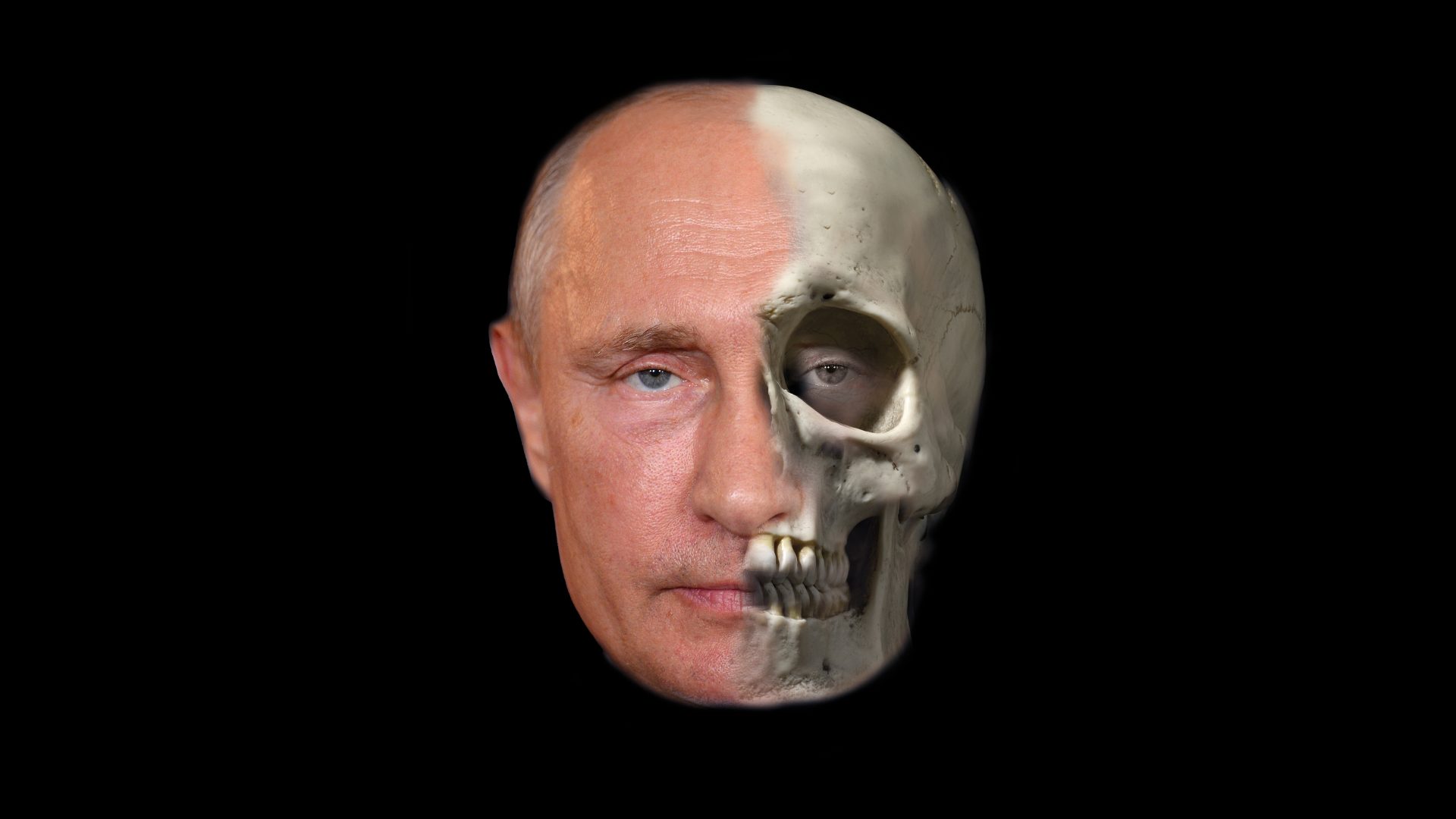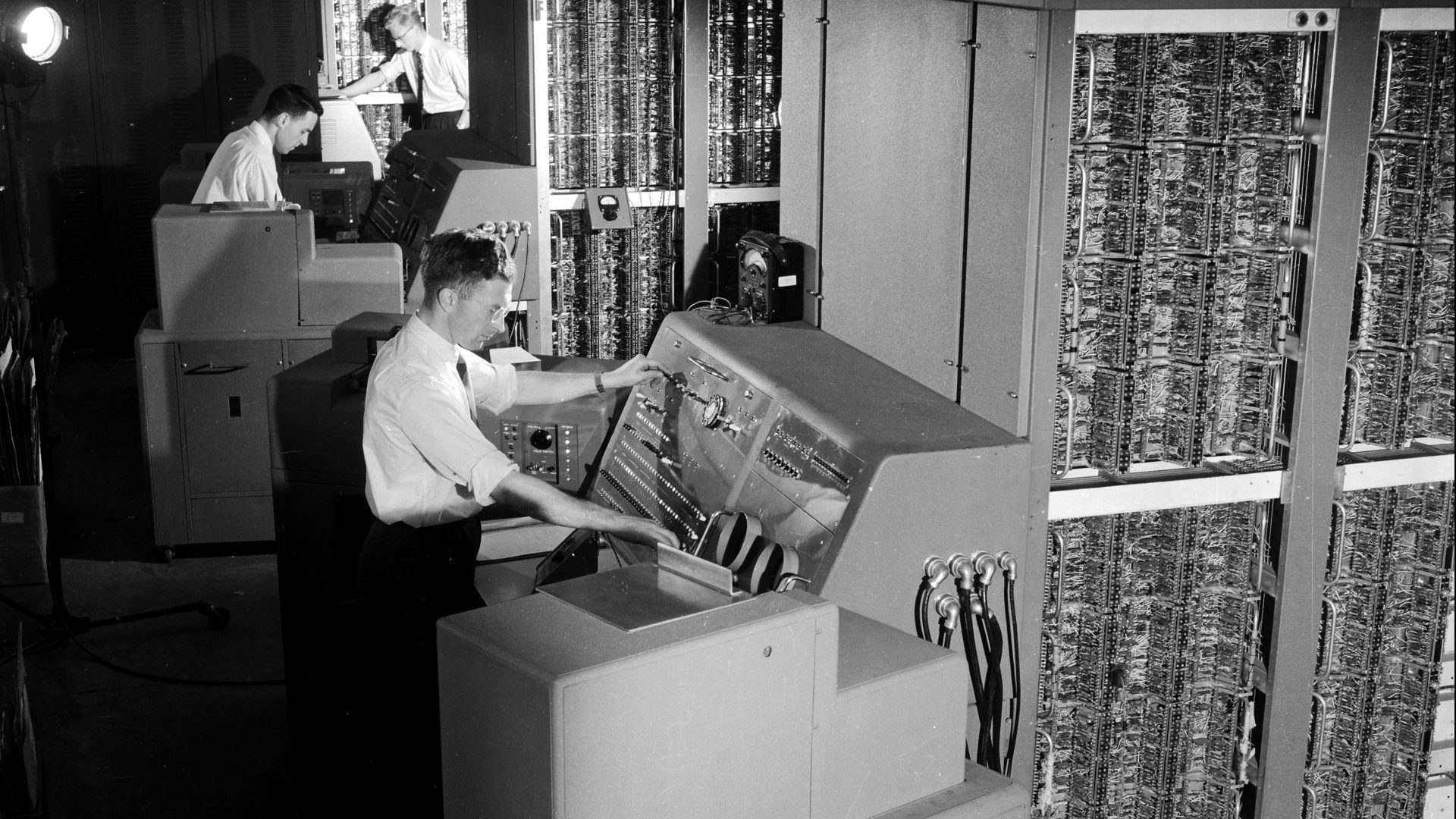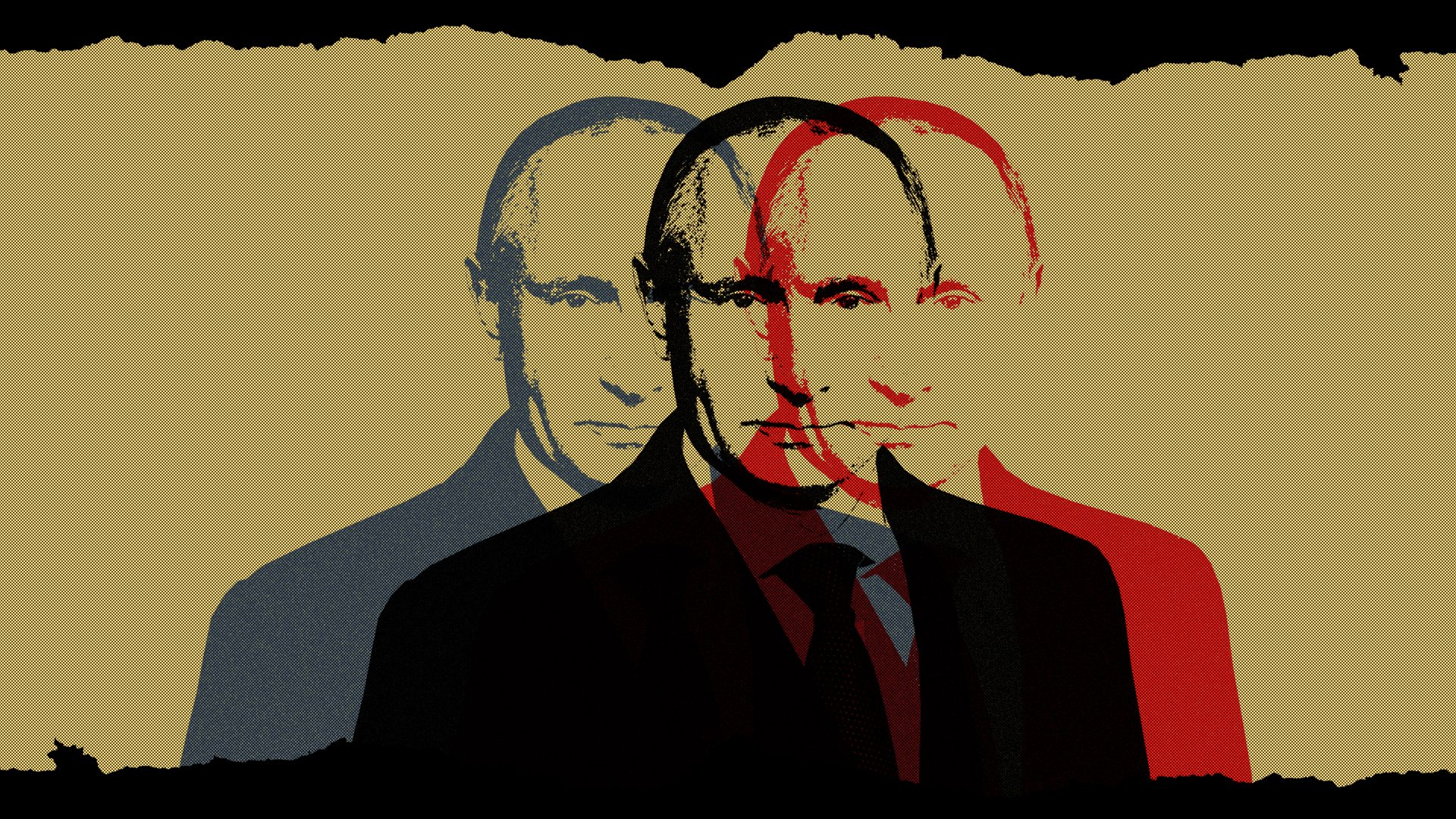Act 1
“Vladimir P.” Visits His Psychoanalyst
These are selected examples of the verbatim free associations of patient “Vladimir P.”
As a psychoanalyst, I am, of course, forbidden by my profession’s code of ethics to reveal the full name of my patient, who has been under my care since he assumed a senior-level position in the government of a very large country on December 31, 1999.
My original case history notes, identifying the full name of the patient, are being submitted to the Freud Collection at the Library of Congress, and will become available for researchers in 2122.
1: “I’m 70 in October. I’m terrified of death. My libido isn’t what it used to be… you know? I just can’t get it up so easily. And I don’t have the same zip in my step anymore. Plus, my face… it’s getting… puffy. The Botox isn’t working like it used to. It used to make the skin… tight. Now I stare in the mirror and this soft old man’s face stares back. On top of that, my suits don’t fit so well anymore. I got these … manboobs. Doctor, you think maybe those anti-depression pills you got me are making me… fat?”
2: “Christ almighty, doctor, it’s really, really, hard to be Tsar. Nobody understands. So lonely. Everyone keeps whispering behind my back about all the mansions I’ve got in Sochi. Nobody complained when Stalin built all his dachas! That asshole Navalny. He’s the one with the big mouth. Time he went for a swim. With the concrete galoshes. Know what I mean?”
3: “All right, so, yes, I admit it: I got lucky. I’m a mid-level KGB officer who found my way to the top of the Kremlin because I promised that daft old drunk, Yeltsin, I’d keep his family out of jail for stealing tens of millions. But you know what? If I’d known how this was going to turn out… maybe I’d have flipped and gone the other way. Who’s going to get me off the hook Doc? I got two hundred billion stashed and I can’t touch a single dime. I got enemies everywhere Doc. Ev-e-ry-wheeeeere. Say… why you looking at me that way? What the hell are you taking notes for? Huh?”
4: “I haven’t left the Kremlin since this Covid shit started two years ago. God damn those sneaky Chinese! All I do these days is stay at home and watch RT. But I’m smart Doc. Why do you think I bought those long tables in my conference room? I’m not going to catch Covid from sitting next to these saps like Peskov and Lavrov. You know why that Macron simp wouldn’t take our PCR test before he came here sucking up to me…? ‘Oh Vladimir… please don’t do anything mental again. Angela won’t like it’ and all his whiny shit. Because he was peak infectious and he’s trying to bump me off. Fact! I could see it in his eyes, from over there, five metres away at the end of the table. Nobody tells me the truth anymore. Why are they so afraid of me? I love dogs. I go fishing. I’m an approachable kinda guy.”
5: “Doc. You saw what they did to Gaddafi, right? You seen the photos? Here… take a look. Take a good long look. I keep them in the top drawer so I can give myself a reminder every now and then. Look at the way they bashed his head in. Look what they did to his face. And they wrecked those great sunnies he always had. His guys did that! His. And you ask me why I’m anxious! I’m not going to let Navalny’s thugs do to me what happened to Mo and The Sad Man. You remember Saddam? Funny, funny guy. And he was right about one thing: Brando sure made a fantastic Godfather. Two is terrific, don’t get me wrong. But it ain’t got Brando.”
6: “Doc. I’ve made a decision. Nobody knows but you. So if this slips out… then you know what’s going to happen, right? Curtains. OK. Listen up. You and me know very well this is the greatest country in the world. I did that. It’s me that turned the Russian Federation into a world superpower when those softy Soviets let it go to shit. Our Red Army… I mean Russian Army… it’s the most powerful on the planet. Like I told that American idiot: ‘You know, Donny, we have these hypersonic missiles.’ And Trump said, ‘Well, we will get them too.’ Guess what I said? C’mon guess … ‘Ha, ha. Well, yes, you will get them, eventually, but we got them first.’ He turned this weird orange colour. More than normal. Back of the net! Plus, I saved the Russian people from decadent western values like gay rights, democracy and freedom of speech. So everyone’s in a good place and now… now it’s time to look after Numero Uno. Hitler, Stalin and Mao, the three greatest leaders of the 20th century, right. Plus Thatcher a little bit, but she was a woman so she don’t count. God those fellas knew how to command respect from the West, didn’t they? What do they all have in common Doc? Huh? Thattaboy… war. They all secured their glorious places in history through inflicting death and misery upon millions. So here’s the Big Idea, Doc. Those Ukrainians with that pushover of a comedian running the show. All I gotta do… [punches hands together and silently mouths the word “kaboom”] and those pussies gonna roll over. We all know Ukrainians and Russians are one people, a ‘yedinyi narod’. Sure, the Americans will piss their pants, but that old geezer Biden has got to learn not to fuck with me. And after that? After that they’ll build me a mausoleum right here, next to Lenin’s… and mine’s gonna have TWO floors. And air conditioning. And a TV playing ice hockey highlights 24/7. I’ll be immortal Doc. I’m gonna live for ever! You know, Doc, I’m feeling a little better now. You shrinks really know stuff, don’t you?”
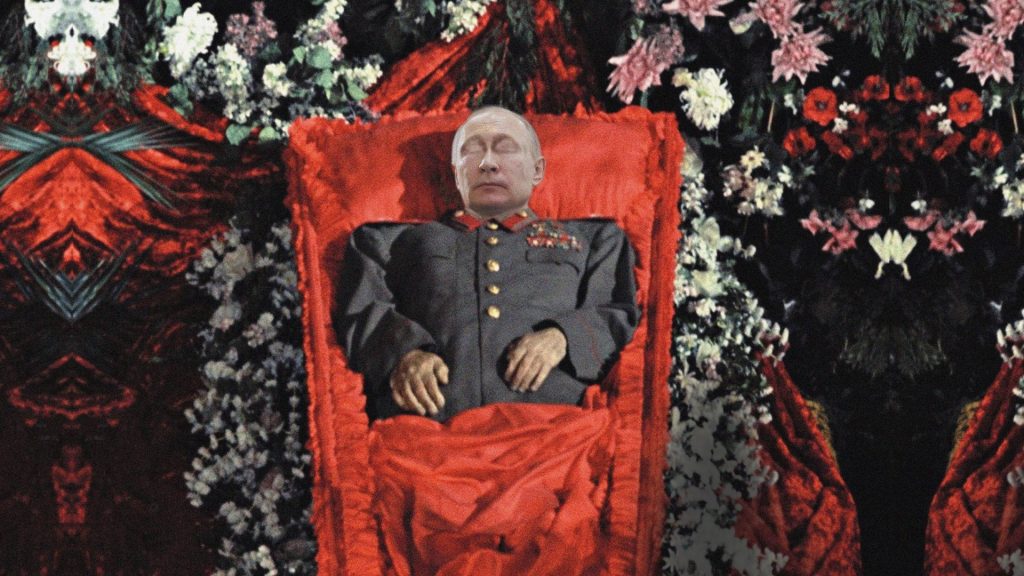
Act 2
Inside the Mind of Russia: A Dream of Immortality
In recent years, social psychologists studying Terror Management Theory have conducted over 1,500 randomised controlled experiments to test Otto Rank’s most compelling hypotheses: “The death fear of the ego is lessened
by the killing, the sacrifice, of the other; through the death of the other, one buys oneself free from the penalty of dying, of being killed.”
Across many cultures and populations, experimental findings have shown that human beings tend to project their terror of death on to “the other”, thereby sanctifying group paranoia, hatred, scapegoating, and, in its most vicious form, even genocide.
We kill other human beings, according to Rank, to show that we can triumph over death. What greater evil is there than that imposed on us, against our will, by the Grim Reaper? Rank said that we seek to protect our immortality rather than our lives. Preserving our illusion of immortality is more important than preserving our bodies. “By projecting our nemesis, death, upon another whom we can kill,” writes E. James Lieberman in his introduction to Rank’s Psychology and the Soul, “we symbolically annihilate death.”
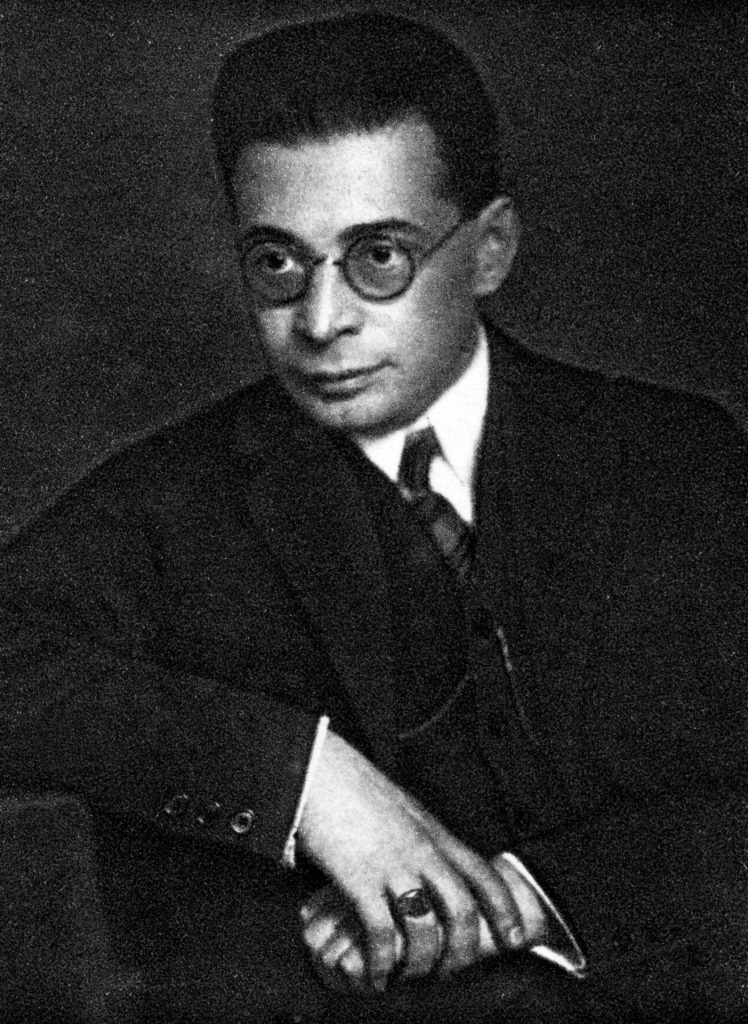
The denial of death, adds Ernest Becker in Escape from Evil, is “an expression of the will to live, the burning desire of the creature to count, to make a difference on the planet because he has emerged on it, and has worked, suffered, and died.”
The basic motive of mankind, said Rank, is self-perpetuation, reaching towards the dream of immortality, an immortality provided by the seductive blandishments of religion and the nation-state. Today, like religion, the nation-state is a universal symbol of immortality.
Each of the 193 member-states of the United Nations promises permanent safety, meaning and dignity for its citizens; gnats who wander on a tiny portion of a minuscule planet in a vast, unfathomable, frightening universe that cares nothing for human beings.
Apparent in every war fought since the 1648 Treaty of Westphalia, the nation-state’s insatiable urge for immortality has once again erupted on the world stage.
Russia’s attack on Ukraine represents Vladimir Putin’s second salvo in an existential struggle with the West, the first being the annexation of Crimea in 2014.
In a blistering speech justifying the latest Russian invasion, Putin declared: “For our country, it is a matter of life and death, a matter of our historical future as a nation. […] It is not only a very real threat to our interests but to the very existence of our state.” No clearer statement of Rank’s insight that the terror of death underlies the state-sponsored bloodletting of war has ever been uttered by a country’s leader. “Since the main task of human life is to become heroic and transcend death,” writes philosopher Sam Keen in his foreword to Becker’s Pulitzer Prize winning The Denial of Death, “every culture must provide its members with an intricate symbolic system that is covertly religious. This means that ideological conflicts between cultures are essentially battles between immortality projects, holy wars.”
Today, Vladimir Putin is fighting a holy war against the West, not merely a war to return Ukraine to what he insists, indignantly, is its Russian origins. This is the meaning of his oft-repeated claim that the death of the Soviet Union was the “greatest geopolitical catastrophe” of the 20th century.
A messianic leader with Napoleonic ambitions, Putin dreams of being the great Slavic hero who saves the God-fearing Russian people from impending death at the hands of the decadent, atheistic West, a West dominated by ungodly gay rights advocates, a West that better be ready for nuclear war if it attempts to interfere in the sacred cause of Russia’s immortality project.
“I would now like to say something very important for those who may be tempted to interfere in these developments from the outside,” he warned in his speech. “No matter who tries to stand in our way or all the more so creates threats for our country and our people, they must know that Russia will respond immediately, and the consequences will be such as you have never seen in your entire history.”
Putin is saying that he is willing to fight to the last Russian for the sake of Russia’s immortality; he is willing to sacrifice the bodies of his own soldiers and ordinary Russian citizens, on top of murdering thousands of Ukrainians, for his and Russia’s dream of immortality.
But before we congratulate ourselves for being so superior ethically to the KGB goons in the Kremlin, let’s not forget that the democratically elected leaders of the United States, Great Britain and the EU, all now avowed foes of Russia, share the same irrational dream of immortality.
We have met the enemy, Pogo said, and it is us. According to Rank, every nation-state constructs the symbols of civilisation to give its citizens the hope that their lives have meaning, that something permanent will outlast the decay and disappearance of their bodies.
And when the protective shield of culture and civilisation cracks open, as it has during this horrific war, and neither the Russians nor the West can any longer deny death, the terror of falling into the abyss suddenly overwhelms us all with anxiety. “This is the terror,” writes Becker, “to have emerged from nothing, to have a name, consciousness of self, deep inner feelings, an excruciating yearning for life and self-expression – and with all this yet to die”. To return to the void of non-being, of nothingness, from which we emerged.
We are born to die. Yet the expression of our creativity, argued Ernest Becker, drawing on Otto Rank’s writings on art and the creative will, allows us to transcend death – through the construction of time-defying monuments of art and culture, whose symbols provide meaning in a terrifying universe, helping us to deny death in a healthy way and glimpse, if only faintly, the eternal.
The astonishing creativity of the Ukrainian military, and Ukraine’s heroic citizens, battling far superior forces gives us a sliver of hope that all is not lost yet on the planet Earth.
Robert Kramer, PhD, is professor of psychoanalysis at Eötvös Loránd University in Budapest. He is the author of The Birth of Relationship Therapy: Carl Rogers Meets Otto Rank (Psychosozial Press, 2022). From 1975-2001, he served in progressively senior positions in the US government, including as a member of vice-president Al Gore’s task force to reinvent the federal government.

